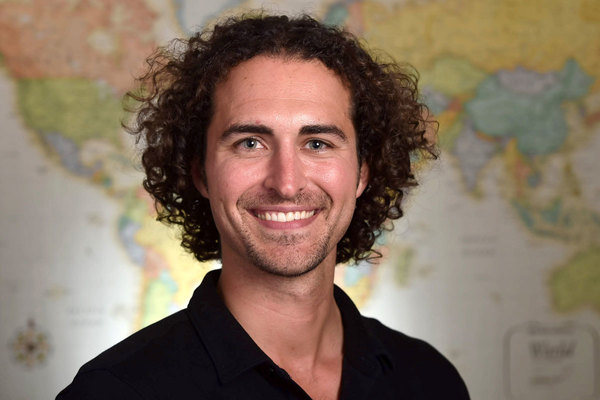

When he began his Ph.D. program in Peace Studies and Theology at the Kroc Institute for International Peace Studies, Michael Yankoski couldn’t have imagined the ways his training at the University of Notre Dame would combine with his background in computer science to land him a unique postdoctoral position. Beginning December 1, Yankoski will serve as a Postdoctoral Research Associate working with emerging interdisciplinary projects that seek to combat disinformation online and on social media in order to help forecast and prevent mass violence around the world.
“This is a well-earned and very exciting opportunity for the peace-focused, global ethicist that Michael has become,” stated George A. Lopez, a member of Yankoski’s dissertation committee and placement director for Kroc Institute Ph.D. students. “Rumors and false information abound in many elections and as mobilizers for mass atrocities. Michael’s skill set is perfect for this project, which could not be more timely”.
During his studies at Notre Dame, Yankoski met Walter Scheirer, assistant professor in the Department of Computer Science and Engineering and now a Kroc Institute faculty fellow, and Tim Weninger, associate professor in the Department of Computer Science and Engineering and their shared interests emerged. They also partnered to present a well-attended panel discussion on the ethics of Artificial Intelligence (AI) at the Kroc Institute’s November 2019 Building Sustainable Peace conference. These conversations launched a collaborative effort resulting in the publication of an article in the Bulletin of the Atomic Scientists in March that previewed the development of an AI early warning system meant to monitor the ways manipulated content online (i.e., altered photos, misleading memes, edited videos, etc.) can lead to violent conflict, societal instability, and interfere with democratic elections.
This research has continued and has now grown into a two-year postdoctoral appointment for Yankoski. His work will be funded through a New Media Literacy grant from the United States Agency for International Development (USAID), and will be focused specifically on Indonesia. The project expects to develop new technologies that can identify misinformation campaigns in real time and flag them so people can identify and prevent the spread of misleading content on social media.
In addition, Yankoski is also partnering with Scheirer, Weininger, and Ernesto Verdeja, associate professor of political science and peace studies, looking at the applications of this same AI technology in other contexts where this is a high risk of outbreaks of violence surrounding political processes and elections.
Yankoski says that the interdisciplinary nature of his doctoral studies has equipped him well for this work.
“My interdisciplinary training has equipped me to draw from various different fields and become part of this team working to solve a very complicated problem,” said Yankoski. “I can bring the normative background as an ethicist, my understanding of systems theory and peace studies, and my computer science background, and I can put all of these in service of peace by helping build cutting-edge technology that will help prevent or limit violence.”
Learn more about the Peace Studies Ph.D. program at kroc.nd.edu/phd.
Contact: Kevin Vaughn, assistant director for doctoral studies, krocphd@nd.edu
Originally published by at kroc.nd.edu on November 04, 2020.